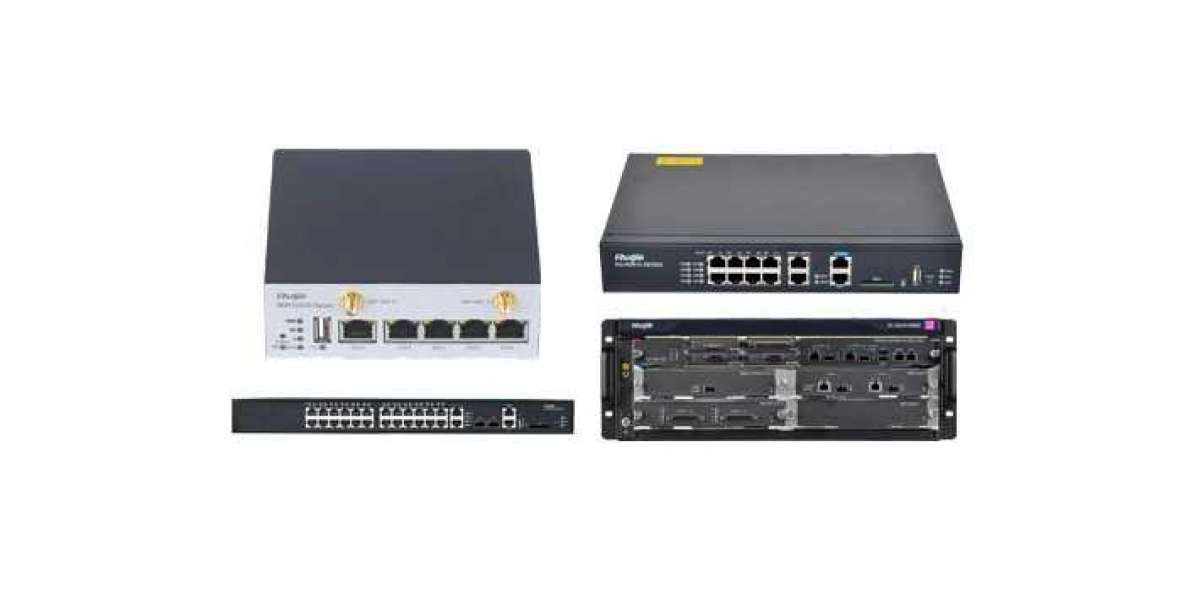What is a Router?
A router receives and sends data on computer networks. Routers are sometimes confused with network hubs, modems, or network switches. However, routers can combine the functions of these components, and connect with these devices, to improve Internet access or help create business networks.
How does a router work?
Routers guide and direct network data, using packets that contain various kinds of data—such as files, communications, and simple transmissions like web interactions. The data packets have several layers, or sections, one of which carries identifying information such as sender, data type, size, and most importantly, the destination IP (Internet protocol) address. The Ruijie router reads this layer, prioritizes the data, and chooses the best route to use for each transmission.
How do routers help your business?
A common tool for modern network computing, routers connect employees to networks, both local and the Internet, where just about every essential business activity takes place. Without routers, we wouldn't be able to use the Internet to collaborate, communicate, or gather information and learn. Routers can also provide security. Embedded firewall and content filtering software provide an additional protection from unwanted content and malicious websites without affecting your online experience.
A Ruijie router isn't just for data transmission or Internet connections, though. Most routers allow you to connect hard drives and use them as file-sharing servers, or printers that can then be accessed by anyone on the network.
Types of routers
1.Core router
Core routers are generally used by service providers (i.e. ATT, Verizon, Vodafone) or cloud providers (i.e. Google, Amazon, Microsoft). They provide maximum bandwidth to connect additional routers or switches. Most small businesses will not need core routers. But very large enterprises that have many employees working in various buildings or locations may use core routers as part of their network architecture.
2.Edge router
An edge router, also called a gateway router or just "gateway" for short, is a network's outermost point of connection with external networks, including the Internet. Edge routers are optimized for bandwidth and designed to connect to other routers to distribute data to end users. Edge routers don't usually offer Wi-Fi or the ability to manage local networks fully. They typically have only Ethernet ports—an input to connect to the Internet and several outputs to connect additional routers. Edge router and modem are somewhat interchangeable terms, though the latter term is no longer commonly used by manufacturers or IT professionals when referencing edge routers.
3.Distribution router
A distribution router, or interior router, receives data from the edge router (or gateway) via a wired connection and sends it on to end users, typically via Wi-Fi, though the router usually also includes physical (Ethernet) connections for connecting users or additional routers.
4.Wireless router
Wireless routers, or residential gateways, combine the functions of edge routers and distribution routers. These are commonplace routers for home networks and Internet access. Most service providers provide full-featured wireless routers as standard equipment. But even if you have the option to use an ISP’s wireless router in your small business, you may want to use a business-level router to take advantage of better wireless performance, more connectivity controls, and security.
5.Virtual router
Virtual routers are pieces of software that allow some router functions to be virtualized in the cloud and delivered as a service. These routers are ideal for large businesses with complex network needs. They offer flexibility, easy scalability, and a lower entry cost. Another benefit of virtual routers is reduced management of local network hardware.





